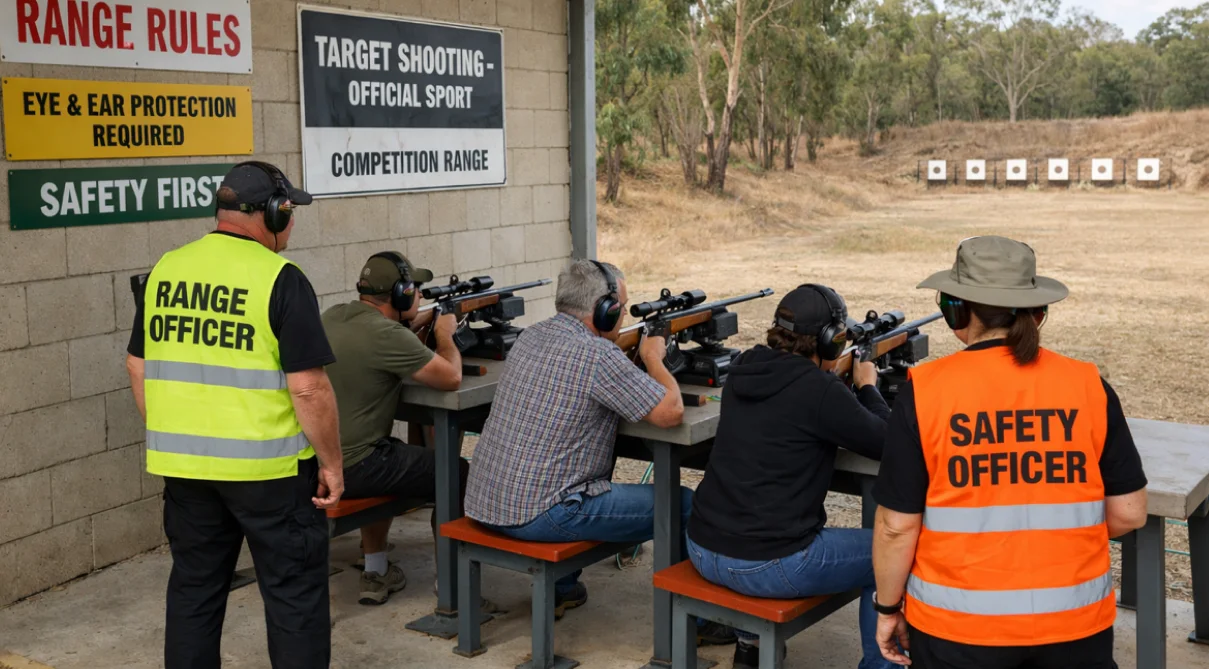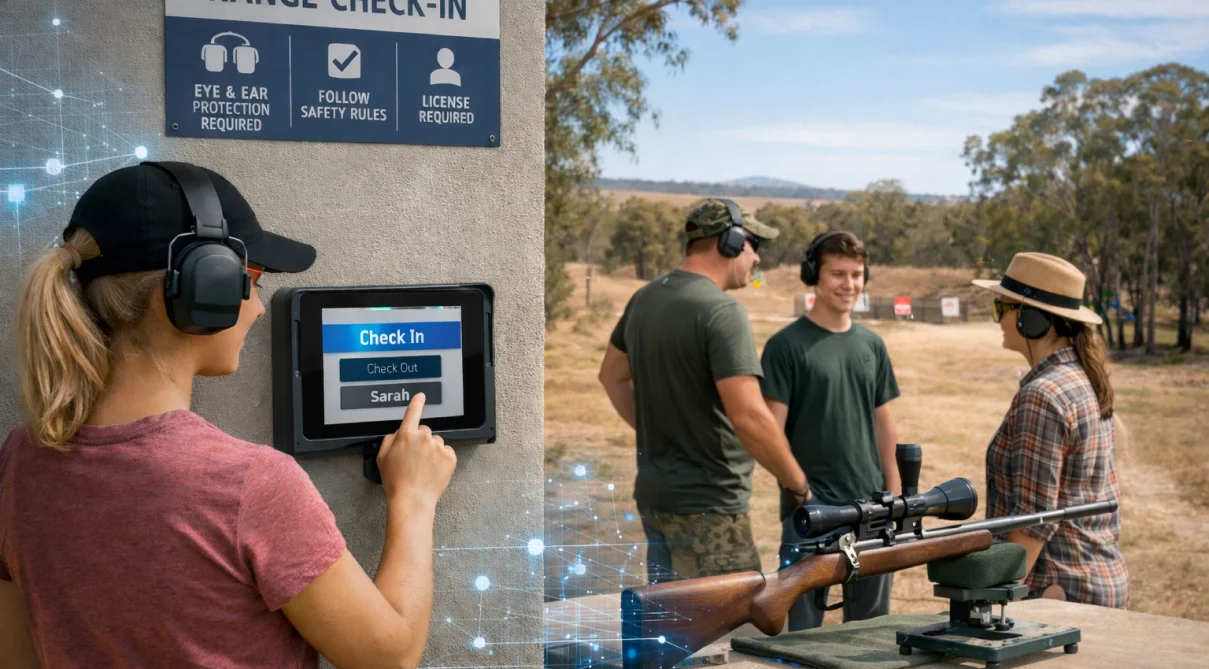Shooter Interview: Joshua Bell Olympic Skeet Shooter
Olympic skeet shooter Joshua Bell shares his journey from starting the sport at 12 to competing on the world stage


For many athletes, their journey begins with a spark of interest that grows into a lifelong passion. For Joshua Bell, an Olympic skeet shooter representing Australia, this journey began at the age of 12, driven by a connection with his father and a shared love of shooting sports. Over the years, his dedication to ISSF skeet has taken him to remarkable heights, including competing at the Paris Olympic Games.
In this exclusive interview, Joshua shares his experiences, challenges, and personal growth in the sport, offering a rare glimpse into the life of a world-class shooter. From early days camping at competitions with family to the precision and focus required at the elite level, Joshua’s story is both inspiring and insightful.
Joshua also tackles misconceptions about sports shooting, emphasising the values of responsibility, discipline, and community that the sport fosters. For anyone curious about the world of competitive shooting or seeking inspiration from a driven athlete, Joshua’s insights provide a compelling narrative.
The Interview
1. How did you first get involved in sports shooting?
My dad brought me into the sport at 12 years old, It was an opportunity to keep me focused on school because if I didn't keep up my results then I wouldn't be able to go away or do some training with dad during the week.
2. What inspired or motivated you to try shooting as a sport?
As mentioned above, it started out as a hobby for me and my dad to spend time together and has grown from that.
3. Could you share any memorable experiences from your early days in the sport?
I would say the most memorable trips have been the ones to country towns with friends and family, camping out on the grounds, having dinners and laughs around campfires at night and just meeting new people from all over the different states.
4. Did you have a mentor or coach who helped you along the way?
I've had several coaches along the way, each playing their own small parts in my development and successes to date.
5. What discipline of shooting do you focus on, and why did you choose it?
I focus on ISSF skeet, It was a natural transition for me as I started out shooting American Skeet with my father.
6. How has your approach or perspective on the sport changed over the years?
It's changed in many ways, like a lot of high performance sports, you learn to navigate the political agendas along the way just as much as the high performance components. I'm a long way away from the kid who just enjoyed his sport with not a care in the world, but it's definitely a memory I take with me to still find enjoyment in the sport as much as I can, even at such a high level.
7. Are there particular skills or techniques you’re known for?
Not sure I would be known specifically for anything like this but probably more so for having a relaxed approach to my shooting and trying to not complicate things too much.
8. Have you participated in any significant events or competitions, and how did those shape your journey in the sport?
Yes definitely, The Paris Olympic Games was by far my biggest event and has given me a very strong understanding of how to approach a lot of other events in the near future!
9. What would you say is the main appeal of sports shooting for you personally?
For me personally, it's the fact that we have such a diverse range of ages across our sport. We have 12 year olds and on the other end we have retirees who also happily participate on a weekly basis so the opportunities are endless, women including my wife can easily go on a break and have a family, come back to the sport and in a short time be just as competitive as they were when they left. I can't say I know of many other sports who offer that kind of range and options to balance life.
10. How would you compare the focus and precision required in shooting to other sports or hobbies like golf or snooker?
Unfortunately, I wouldn't know because I have not done much of either of those, however I would say it's similar in terms of the outing and social aspect of things. We have a grading system so a beginner can turn up and still look to win his grade and contest with people who are at a similar level of competition rather than try to compete with the more experienced people so there is still plenty of engagement and encouragement to improve.
11. How do you usually explain sports shooting to someone who’s never tried it or who might be skeptical about it?
It's like golf with a shotgun! but better!
12. Are there any routines or practices that help you stay focused during a shoot, similar to routines in other precision sports?
Yes, my coach and I work on small games that help you stay focused throughout the duration of your rounds while you shoot! It also takes the focus off the round as a whole for example when you know you are shooting well and you just try that little bit too much to make something happen rather than just trusting yourself.
13. How has sports shooting impacted your personal life or shaped who you are?
I don't think there is an aspect of my life that shooting hasn't affected at some point, I've leverage relationships in the sport to get my first job, transition into what is now my main career, met my wife through the sport and have been privileged enough to travel the world representing my country along the way!
14. What values or skills do you think sports shooting promotes that could be misunderstood by those unfamiliar with it?
I think the biggest aspect is the safety component, it's a natural perception that because we used firearms that we or the sport can be dangerous.. As I mentioned earlier, I started shooting at 12 which is far earlier than being able to drive or drink alcohol for example. It teaches responsibility and maturity from such a young age that by the time those other life milestones roll around, you can take them in your stride and also understand that you need to be responsible and accountable for your actions when you're doing any of these activities.
15. What do you think is the biggest misconception people have about sports shooting, and how would you address it?
I would probably just reiterate what i've said above, people are quick to judge and think that firearms/ guns are bad, in the wrong hands yes they can be dangerous but so can a car. Us as firearms license holders walk such a fine line to be able to keep our licenses and enjoy our chosen sport. We conduct ourselves in the best possible way to ensure that we try our best to never put our sport in jeopardy or in the eye of the press because we know exactly how we will be portrayed if one of us makes a bad move.
Conclusion
Joshua Bell’s journey highlights the unique blend of discipline, camaraderie, and responsibility that defines sports shooting. His path from a 12-year-old beginner to an Olympic competitor showcases the transformative power of the sport—not only as a competitive outlet but also as a way to build lifelong skills and relationships.
Through his achievements and advocacy, Joshua underscores the importance of understanding and respecting the sport, breaking down misconceptions, and fostering an inclusive community. For aspiring shooters and seasoned competitors alike, his experiences offer valuable lessons in perseverance, focus, and the joy of embracing a passion.




